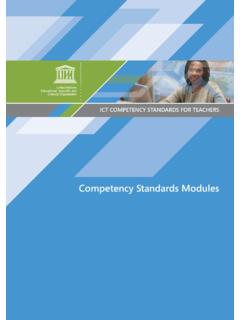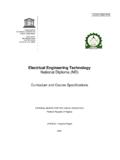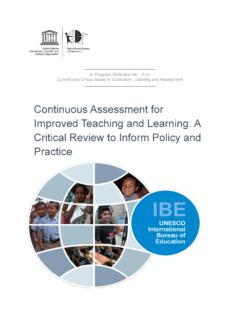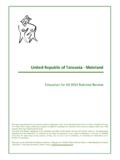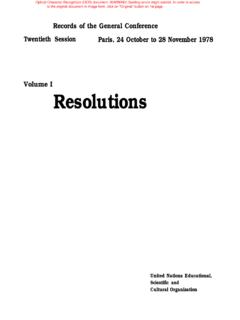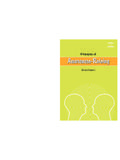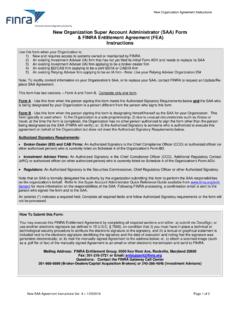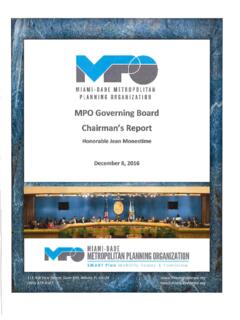Transcription of Development administration: obstacles, theories …
1 ПЕР Occasional Papers No. 2 Development administration : OBSTACLES, theories AND IMPLICATIONS FOR PLANNING Peter W. Rodman Unesco : International Institute for Educational Planning Development administration : obstacles, theories , and implications for planning by Peter W. Rodman Development administration : obstacles, theories and implications for planning HEP Occasional Papers The studies in this series include papers contributed by the Institute's staff, visiting fellows, interns and consultants. Some of the studies have originally been prepared as part of the training programme of the Institute; others have previously appeared as working papers for the Institute's seminars and symposia.
2 All of them, in the Institute's view, are of sufficient in terest to merit being re-issued and distributed on a wider scale, By their very nature these papers are less formal and have not been given the full editorial processing cus tomary for HEP 'official publications'о The opinions expressed in these papers are those of the authors and do not necessarily represent the views of the Institute,, The use, adaptation or reproduction, in whole or in part, of these papers is limited to institutions and persons specifically authorized by HEP Printed in France by the International Institute for Educational Planning 7 rue Eug ne-Delacroix.
3 75 Paris-16e December 1968 CONTENTS INTRODUCTION ADMINISTRATIVE OBSTACLES Shortages of skills and tools 9 Difficulties of organization and structure 12 Political difficulties 15 Cultural and attitude barriers 16 CONCEPTUAL FRAMEWORKS 19 IMPLICATIONS FOR PLANNING 31 Critique of Riggs's Theoretical Model 31 Lessons for Planners 39 SELECTED AND ANNOTATED BIBLIOGRAPHY 45 LIST OF INSTITUTIONS, PEOPLE.
4 AND SPECIALITIES 56 INTRODUCTION Public administration is a strategic factor in economic and social Development . It influences and determines the success of any Development plan, and is at the same time susceptible to deliberate social control and change. The inadequacy of administration in many developing countries is now recognized as a major obstacle to Development , perhaps more serious an obstacle than the lack of capital or foreign aid. Herbert Emmerich, a noted scholar and administrator, estimates that 80 per cent of the plans of the world are incapable of being ful-filled because of administration . (1) The term ' Development administration ' can be used in a broad sense, to em-brace the variety of approaches and points of view that mark the study of public administration in developing countries.
5 Some writers have sought to assign a more restricted and precise meaning to the term, but their attempts have been arbitrary and conflicting. Some speak of ' Development administration ' in order to emphasize the inadequacy of the established discipline of 'public administra-tion', others treat the field as merely an application of the traditional study; still others use the term with neither connotation. Some use the term in the sense of 'the administration of Development '; others are thinking of the develop-ment of administration ; still others see these concepts as two sides of the same coin. Another important school of thought which studies the role and problems of administration in developing countries calls its field 'comparative public administration '.
6 The battle over meanings and labels is symptomatic of sub-stantive differences in approach and outlook - which, we shall see, have important implications for planning. To some degree, all of the different approaches share a comparative point of view. Almost every writer who discusses a developing bureaucracy is at least implicitly holding up against it the Weberian image of the efficient, rational, functionally specialized, impersonal, non-political bureaucratic hierarchy, an image associated chiefly with the western industrialized nations. These developed bureaucracies probably look good only when being compared with their counterparts or imitators in developing countries.
7 But the latter, although they certainly did not invent corruption, irrationality, and incompetence, are more afflicted with those ills, and much less able to afford them. Whatever their views of the appropriateness of the Weberian standard, students of develop-ment administration inevitably focus on the falling-short-of-the-ideal as their special problem. (1) Herbert C. Emmerich, speaking at the XIHth Inter-national Congress of Administrative Sciences, Meeting of Representatives of Schools and Institutes of Public Adminis-tration, Paris, 21 July 1965. 7 Development administration Thus the immediate contribution of Development administration is its exposure of the administrative obstacles to the planning and implementation of Development .
8 The literature of the field presents a formidable catalogue of specific obstacles, which the first section of the paper will examine. The field also offers theoretical analyses, 'conceptual frameworks', designed to illuminate the causes and inter-relations of these obstacles, and these will be discussed in the second section. The most prominent of these theories is that of Professor Frederick W. Riggs of Indiana University, Riggs's model is useful because it achieves its aim of illumination, but many of its implications - for Development administration as a discipline,for the prospects of administrative reform, and for planning - are controversial.
9 A third section will deal more thoroughly with the lessons, implications, and overall usefulness of Development administration . 8 1 ADMINISTRATIVE OBSTACLES Students of public administration tend to view administration in developing countries as an output. They ask, for example, how can the Western nations help produce and equip competent personnel for the administrative tasks of Development ? This objective obviously coincides with one of the aspects of educational planning But the educational planner - indeed any planner - is confronted by the pro blems of administration in another respect as well - as an input.
10 The indigenous administration , whatever its failings, is the instrument that must execute the plans It is not only a patient to be cured, it is also the only doctor in town. Technical assistance can, indeed, only assist. Thus, while schools and institutes of public administration have before them the long-run positive task of training and improving public administrations, the planner working with administration as an input meets the difficulties in the short run. The study of Development administration will have for him at least the negative usefulness of illuminating the obstacles he must take into account if his* plan is to have a chance of being implemented.
